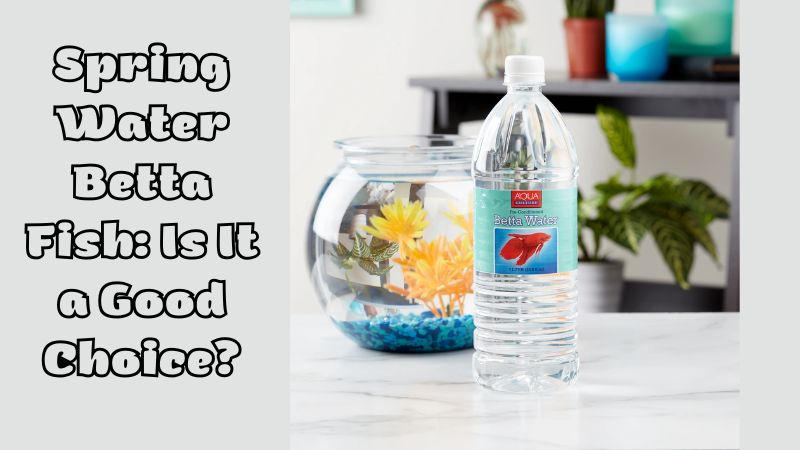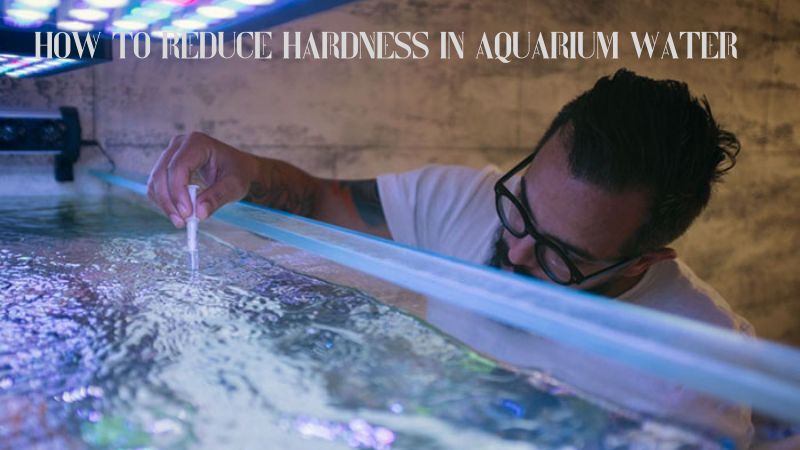When it comes to caring for Betta fish, one of the most important factors to consider is the quality of the water in their tank. Betta fish, also known as Siamese fighting fish, are sensitive to water conditions, and choosing the right type of water can greatly impact their health and well-being. Many fish owners wonder whether spring water betta fish is a good option for Betta fish tanks. Join FishLoverZone as we explore spring water for Betta fish and its benefits.
1. Understanding Spring Water
Spring water is natural water sourced from underground springs. It typically contains a variety of minerals and nutrients that have been absorbed as it flows through rocks and soil. Unlike distilled or purified water, which has been stripped of most minerals, spring water retains a balanced mineral content that can benefit fish and other aquatic life.
Key Characteristics of Spring Water:
- Contains essential minerals: Spring water usually has a mix of minerals such as calcium, magnesium, and potassium, which are beneficial for fish.
- Natural source: Spring water is sourced directly from nature and is typically less processed than tap water.
- Varies in quality: The composition of spring water can vary depending on its source. Some spring waters may have higher or lower mineral levels, which could affect its suitability for Betta fish.
2. Benefits of Using Spring Water Betta Fish

There are several advantages to using spring water in a Betta fish tank:
Rich in Natural Minerals
Spring water often contains a natural blend of minerals that can help support the overall health of your Betta fish. These minerals play a role in:
Maintaining stable pH levels: The minerals in spring water can help stabilize the pH, which is crucial for Betta fish. They thrive in slightly acidic to neutral water, with an optimal pH range of 6.5 to 7.5.
Improving water hardness: Betta fish prefer water with moderate hardness, and spring water’s natural mineral content can contribute to maintaining the right water hardness level (measured as GH and KH).
Fewer Chemicals than Tap Water
Unlike tap water, which may contain chlorine, chloramine, and other chemicals harmful to fish, spring water is typically free from these additives. This reduces the need for water conditioners and minimizes the risk of introducing harmful substances into your Betta’s habitat.
Natural Balance
Spring water can offer a more natural environment for your Betta fish compared to distilled water, which is stripped of all minerals. The natural balance of spring water can help Betta fish stay healthy and vibrant.
3. Drawbacks of Using Spring Water for Betta Fish
While spring water can provide benefits, there are some potential drawbacks to consider:
Inconsistent Water Composition
One of the main concerns with spring water is its inconsistency. Different sources of spring water may have varying levels of minerals and nutrients, and some may be too hard or too alkaline for Betta fish. It’s essential to test the water before introducing it to your tank to ensure it falls within the appropriate range for Betta fish care.
Potential for Contaminants
While spring water is generally considered clean, it may still contain trace amounts of contaminants such as nitrates or heavy metals, depending on its source. Testing the water for any impurities is crucial to avoid exposing your Betta to harmful substances.
4. How to Safely Use Spring Water Betta Fish
If you decide to use spring water for your Betta fish, follow these steps to ensure it’s safe and beneficial:
Test the Water
Before adding spring water to your Betta fish tank, use an aquarium water testing kit to check key parameters such as:
pH: Betta fish prefer a pH between 6.5 and 7.5.
Hardness (GH): Betta fish do best in water with a moderate hardness level, ideally between 3 and 5 dGH.
Alkalinity (KH): The carbonate hardness should be around 3 to 4 dKH to maintain stable pH levels. Testing the water will help you determine if any adjustments are needed before introducing it to your aquarium.
Monitor Your Betta’s Behavior
After switching to spring water, keep a close eye on your Betta fish. If you notice any signs of stress, such as lethargy, changes in color, or unusual swimming patterns, test the water again and consider adjusting the pH or hardness with aquarium-safe buffers or conditioners.
Avoid Sudden Changes
When switching to spring water, avoid making sudden changes in your Betta’s environment. Gradually introduce the spring water by mixing it with the existing tank water during water changes. This helps your Betta fish acclimate to the new water conditions without causing shock or stress.
5. Alternatives to Spring Water Betta Fish

If you find that spring water is not suitable for your Betta fish due to its mineral content or other factors, there are alternatives to consider:
Treated Tap Water: With the use of a good water conditioner, tap water can be made safe for Betta fish. Water conditioners remove chlorine, chloramine, and heavy metals, making tap water a convenient and cost-effective option.
Distilled Water with Additives: If you prefer more control over your tank’s water parameters, you can use distilled water and add the necessary minerals using an aquarium remineralizer.
Conclusion
Using spring water Betta fish can be a good choice, provided that the water is tested and falls within the appropriate range of pH, hardness, and other parameters. The natural minerals in spring water can promote a healthy environment, but its variability means that caution is needed. Whether you choose spring water, tap water, or another option, always prioritize maintaining a stable and balanced environment for your Betta fish to thrive.





